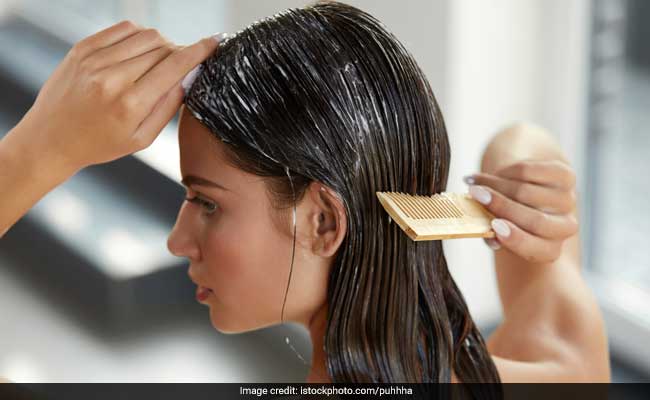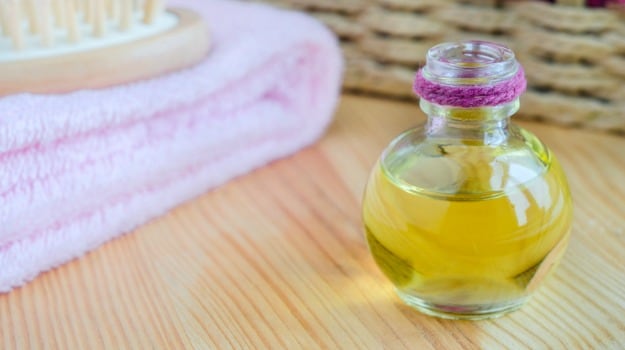Who doesn't want long, lustrous, and voluminous hair? We all do, but getting there is a different ballgame altogether. Everyone has different set of issues to deal with when it comes to hair health. While most of us struggle with snail-paced hair growth, others face issues like brittle dull hair, dandruff and scalp infections. If you are growing your hair, care should also be taken so that it is strong and healthy, avoiding any kind of damage and dull appearance. In some of our previous pieces by our experts, we have shared how to get the basics of hair management right - oiling, shampooing and conditioning. We also did a coherent piece on the importance of hair spas as well the efficacy of hair nourishers and how to make some on your own at home. This article aims at addressing one of the most common issues related to hair management - hair fall.I once had great hair - almost double of what I now have. I never used to experience hair loss, not even a strand. But once it started, it only seemed to get worse. I consulted a dermatologist to understand the natural hair fall and regeneration cycle, and what could be done to treat the issue. I also started reading about causes of hair fall and how dietary as well as topical application of natural ingredients can help in mitigating the loss. And these efforts paid off, as I started noticing a difference.

Hair loss is associated with a number of factors.
Before we get down to treating hair loss, it is important to understand the basics of hair health. Hair is made up of keratin, and sulphur plays a crucial role in keeping a strand intact to its root. "Common hair fall is termed as telogen effluvium, which can be acute or chronic. It is very often seen after a systemic illness like typhoid or malaria, etc in the acute form, and chronic more so seen with vitamin deficiencies in the system. But it's often caused due to the absence of high sulfur proteins due to which hair loss and breakage increases tremendously," says a leading beauty expert and dermatologist, Dr. Deepali Bhardwaj.In her opinion, hair fall has a set pattern and every three months there is a different cyclical phase - catagen, anagen and so on. During every cycle, we see difference in the pattern of hair fall along with the different seasons. "Medically, several studies note daily loss of about 100 hair strands as normal," noted Dr. Bhardwaj.
How I combated Hair Loss
To combat hair fall, you need to dedicate time to yourself. It takes a while for your efforts to kick in your system and start reflecting the results. Here are some tips that helped me immensely -
1. A mouthful of amla and aloe vera juice first thing in the morning.
2. Two teaspoon flaxseeds everyday.
3. Hair wash at least thrice a week (my regime would include oiling (once a week), followed by a hair pack/wrap, shampooing, conditioning and applying serum).

Hair wash thrice a week is a must.
4. At least two litres of water everyday.
5. Combing properly, only wooden comb.
6. Including green tea, nuts, dry fruits and green leafy vegetables in my regular diet; less of caffeine.
7. Ditching hair styling products completely, also hair colouring, ironing, etc.
8. Using only mild, herbal products; no cosmetics.
Other than these, what really helped was the topical application of onion juice on my scalp. I used to get two-three large onions, extract the juice, apply it on my scalp (like hair oil), leave it on for 20 minutes and then wash off. Not many would know but onion juice can do wonders for hair loss, facilitating hair growth, checking scalp infections and keeping it clean and refreshed.
 Onion is the ultimate product for your hair. Photo: iStock
Onion is the ultimate product for your hair. Photo: iStockOnion for Hair-loss
Onion belongs to the Allium family and is very rich in sulfur-containing compounds that are responsible for its pungent odour and health-promoting properties. "We must remember polyphenols are one of the largest categories of phytonutrients in food and the highest content of it is found in onions! A wide variety of allyl sulfides are found in onion, including the four major diallyl sulfides.""Methylsulfonylmethane is a highly absorbable source of sulfur, found abundantly in onions especially in its outer layers. It facilitates the formation of keratin for hair, resulting in hair growth. It also helps a great deal in autoimmune conditions of hair loss like Alopecia Aereata," shared Dr. Bhardwaj.
Dr. Bhardwaj suggests: Onion juice can be mixed with crushed methi seed powder and kept overnight with honey. Apply it on dry scalp, or mixed with olive oil for normal scalp. It can also be applied for focal hair loss patches.

Onion juice is recommended by experts for hairfall treatment.
"As a dermatologist I recommend topical application of onion juice often along with my allopathic medications. Also, in other conditions of hair fall (but only in all non-scarring ones) I often recommend the topical application of onion juice, followed by hot towel or steam application on scalp and washing it off after 30/ 40 minutes," noted Dr. Bhardwaj.
Onion has antiseptic and antibacterial properties. It also helps fight hair lice, dandruff and can be used as a natural hair nourisher and conditioner. I have also used onion juice along with aloe vera juice and olive oil.
Note:Those allergic to dietary intake of onions can get allergy to the topical application as well. Certain medications such as aspirin and other nonsteroidal anti-inflammatory drugs (NSAID) and beta blockers can increase sensitivity to onions.







